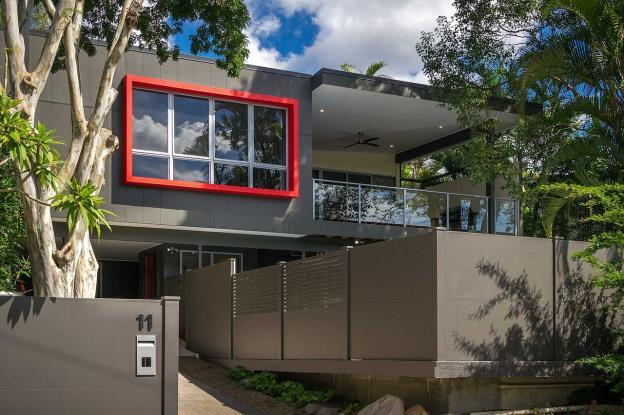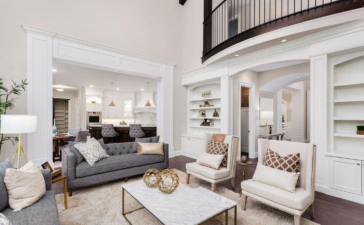
Are you thinking about renovating your home and increasing its value? Even if you’re not selling yet, home renovations can increase the convenience of your everyday life. However, remodeling is not always a straightforward task.
Planning a renovation is usually exciting. You can get many ideas online or from physical catalogs, magazines, and many other sources. While everything may look tempting at this point, remember that there are many mistakes to avoid.
What can these mistakes cost you?
As a homeowner, you may get caught up in the renovation process and forget certain aspects of the home. On the other hand, some people remember important projects but fail to complete them. These mistakes can have several repercussions, including the following:
- Loss of money: You will lose whatever you’ve put into the renovation so far and not be able to benefit from it. Plus, starting a project over again will make the overall cost very high.
- Loss of effort: It takes effort to start a renovation; you have to clear spaces, put sheets on heavy furniture, and perhaps take some time off from work. All these efforts will be wasted if your renovation doesn’t turn out as planned.
Wouldn’t it be better to avoid home improvement mistakes in the first place? Let’s discuss some of these in detail below:
1. Overestimating your DIY Abilities
Unless you’re a DIY expert, there’s not much use in doing major renovations yourself. Sure, you can DIY the occasional paint job or change fixtures, but structural exterior changes like roof replacement, window replacement, insulation upgrades, and siding replacement require help from professionals.
You can contact DreamHome, a trusted remodeling company, for all these renovations and repairs. They have an experienced team with the skills you need for a successful renovation project.
2. Your Budget is Too Unrealistic
Having a budget is a must for any home renovation project. Unless you’re uber-rich, you can’t just throw money at home improvements because they can be costly. To fulfill those renovation goals, here’s what a budget will do for you:
- It helps to define your limits in every aspect of the job; you’d know what range to consider when buying materials, hiring labor, etc.
- It will minimize any unpleasant surprises along the way, at least the ones related to financing.
- It will tell you when to save up more before starting any project.
However, a budget will only be able to help out when you properly think it through. It needs to be realistic; an extravagant project can’t have a small budget.
When you’re creating your home renovation budget, consider each aspect of the planned projects. A few of these include:
- The scope of the project: Make it clear and document it before starting any construction
- The cost and availability of labor, along with what kind of contractor you want to hire
- Whether you will require temporary housing or not
If you aim for a very low budget, you might have to compromise on the quality of materials and craftsmanship. Going too high might saddle you with unaffordable expenses and even debt. It’s best to look up everything you need to know about budgeting for a remodel and then decide.
3. Problematic Design Choices
Looking at all the trends in home magazines and websites can be very addictive. You might get several ideas and want to follow the current trends in home remodeling.
Remember that even if something looks amazing online, you don’t know whether it will be practical in your home.
Before starting on any such project, think about the aspect of your home that needs remodeling. What will bring out the best in an area? What do you need from your home?
Choose according to your budget, but don’t compromise on quality, functionality, and overall appearance. You may have to change your initial vision, but it’s all part of the process.
4. Wasting Time
Home improvement projects take a lot of time in any case, but poor scheduling can waste many more days. Before beginning any project, work with your contractor to make a timeline. Do what you can to stay on schedule, or else you’ll be spending far more money and time than the initial budget.
Here are some issues that might result in your schedule getting off track:
- Taking too long to select fixtures, appliances, materials, and finishes
- Constantly changing your mind about the selections, which slows down the work
- Getting overwhelmed by the choices
- Not having a realistic budget to narrow down the available choices
- Shortages, shipping delays, or other problems from the supply side
If you don’t want to fall back on your schedule, working alongside a design-build or modeling firm is best. There are professionals available to help out with the selection and order processes.
5. Not Getting the Required Permits
Many homeowners are unfortunately aware that they require permits for certain changes and renovations in their structures. They need to apply for these permits and account for that time in their schedule.
Getting certain types of permits might take weeks or even months; you can’t start working on the related projects until then. If you’re not planning ahead, the delay could be a major setback in your renovation timeline.
You can ask your contractor about requiring a permit for your planned renovation projects. You must also determine what permits you need and how to get them in time.
Conclusion
Home improvement projects are always a great idea. They are the best way to increase both the value and look of your home. You might want to consider certain renovations for many reasons as a homeowner. It’s a fun and satisfying process, but only when you get it right.
Remember the tips above and connect with the right people; your dream home might be possible in just a few months! Avoiding costly mistakes will help you reach that goal much faster. So, good luck!













